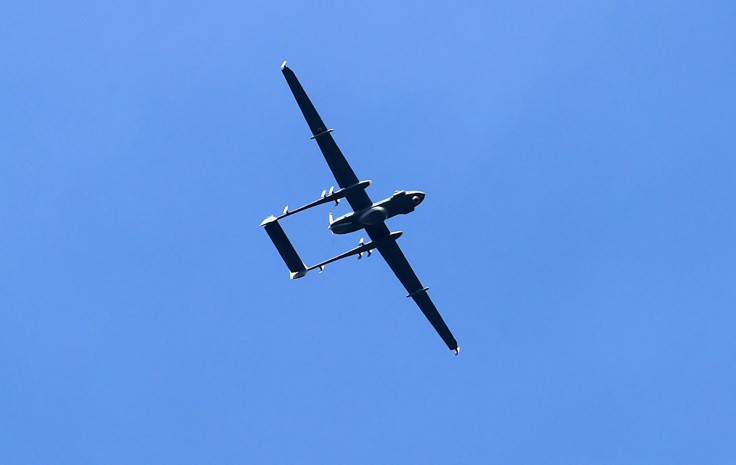Indian Military Drone Crosses Into Chinese Airspace, Crashes Due To Technical Glitch

The Chinese military, Thursday, strongly condemned and opposed the trespassing of an Indian Unmanned Aerial Vehicle (UAV) into Chinese airspace. India, on the same day, claimed that the UAV "lost control" and entered into Chinese territory through the Sikkim (a state in India) border.
According to a report by the Hindustan Times, an Indian news website, India replied to the incident, Thursday, claiming that the UAV was on a "regular training mission," lost control and crossed the border area from Sikkim.
A statement by the Indian Defense Ministry said: "An Indian UAV which was on a regular training mission inside the Indian territory lost contact with the ground control due to some technical problem and crossed over the LAC [Line of Actual Control] in the Sikkim Sector. As per standard protocol, the Indian border security personnel immediately alerted their Chinese counterparts to locate the UAV."
According to a report by Xinhua News Agency, the official press of the People’s Republic of China, deputy head of the combat bureau of the Western Theater Command’s joint staff department, Zhang Shuili stated that the Indian UAV trespassed into Chinese airspace and crashed. He also said that the border troops of China administered identification and verification of the UAV.
The report, however, didn’t reveal the exact location of the crash.
Shuili reportedly said, "India's move has infringed upon China's territorial sovereignty, and we are strongly dissatisfied with and opposed to this."
"We will fulfill our mission and responsibility and defend China's national sovereignty and security resolutely," he added.
The two neighboring nations have been engaged in disputes over the border area since June this year when India stated that it condemned the attempt made by the Chinese to extend a road on the Doklam/Donglang plateau, which is at the border of China, India and Bhutan.
A July report by People’s Daily, the mouthpiece for the Communist Party of China, cited an editorial from 1962 titled "If This Can Be Tolerated, What Cannot?" The editorial stated that the citizens of China won’t tolerate any provocation by the Indian Army.
A July report by the Global Times, a Chinese daily tabloid newspaper, claimed that the June 16 incident — where Indian soldiers crossed the India-China border from Sikkim resulting in a face-off with the Chinese military — was motivated by India's concern with China’s rapid growth. The report stated that both India and China had colonial histories and are now two "big developing countries." With China rising as the world’s number two economy, New Delhi was quite anxious, and the border provocation was the result of India's "worry and attempt to sound out China."
The report also stated that if India increased its military resources in the border area, then China could also compete with India both in terms of economic and military resource deployment in the border areas.
According to a BBC report from July, with regards to the Doklam road extension, it was reported that India was quite anxious about the fact that if the road was completed then China would gain access to India’s "chicken neck." The "chicken neck" is a 12-mile corridor which connects the seven north-eastern states to the Indian mainland.
China and Bhutan had opposing claims to the plateau region and India sided with Bhutan on the issue.
After a few turbulent months earlier this year, tensions decreased when the Indian Foreign Ministry stated that the military was "disengaging" from the Doklam area after an agreement was reached between China and India.
The foreign ministry in Beijing said that it was glad about the fact that the "trespassing Indian personnel have all pulled back to the Indian side of the boundary."
Both nations not only have a colonial past but also a history of war from when the two counties fought against each other in 1962.
© Copyright IBTimes 2024. All rights reserved.






















